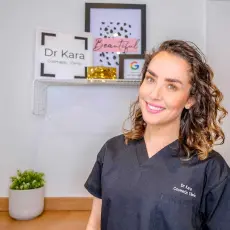Ministers have announced plans to cut down on “cowboy” cosmetic procedures by introducing new restrictions on who can access and provide treatments.
Officials said that people have been left “maimed” by beauty procedures, with some deaths linked to poor care.
The Department of Health and Social Care (DHSC) said that steps will be taken to protect people from “rogue operators” with no medical training who often provide “invasive” procedures in homes, hotels and pop-up clinics.
The move will also reduce the cost imposed upon the NHS to fix botched procedures, DHSC added.
Proposals include:
– Only health workers who are “suitably qualified” will be able to deliver high-risk procedures such as Brazilian Butt Lifts (BBLs).
– And these workers must be working in providers regulated by the health regulator, the Care Quality Commission.
– Those who break the rules on high-risk procedures could face sanctions from the watchdog and financial penalties.
– Clinics offering Botox and fillers will need to be licensed and meet certain standards to obtain a licence by their local authority.
– Age restrictions will be introduced to prevent children from trying to follow “dangerous beauty trends on social media”, officials said. This would see restrictions for under 18s on high risk cosmetic procedures, unless authorised by a health professional.
The Department said that it will launch a consultation next year seeking views on the range of procedures which should be covered in the new restrictions.
Last month, the Chartered Trading Standards Institute warned that fat injections, BBLs, Botox and fillers are being offered by untrained people in places such as public toilets.
Before the proposed regulations come into force, the Government has urged people seeking cosmetic procedures to ask for the provider’s qualifications and insurance, and to be wary of “suspiciously cheap” offers.
It comes after health officials launched an investigation after a number of people had reactions to Botox injections earlier this year.
Health minister Karin Smyth said: “The cosmetics industry has been plagued by a Wild West of dodgy practitioners and procedures.
“There are countless horror stories of cosmetic cowboys causing serious, catastrophic damage.
“This government is taking action to protect those seeking treatments, support honest and competent practitioners, and root out the cowboys as part of our Plan for Change.
“This isn’t about stopping anyone from getting treatments – it’s about preventing rogue operators from exploiting people at the expense of their safety and keeping people safe.
“We’re giving them peace of mind and reducing the cost to the NHS of fixing botched procedures.”
Millie Kendall, chief executive of the British Beauty Council, said: “Any measures that increase protection for the general public and professionalise the industry will help instil confidence as well as helping to prevent the normalisation of horror stories that have become synonymous with our sector.”
Ashton Collins, director of Save Face – a register of accredited practitioners, added: “I am delighted that the government has recognised the significant and potentially fatal risks posed by highly dangerous procedures like liquid BBLs, and has made it a priority to implement restrictions to protect public safety.
“I have seen firsthand the devastating impact these procedures can have on the lives of victims and their families — none more so than the family of Alice Webb.”
Ms Webb, 33, from Gloucestershire, died in 2024 after having a BBL.
The mother-of-five worked in the beauty industry and lived in the Wotton-under-Edge area of Gloucestershire with her family.
Additional Notes
- The new regulations will be subject to public consultation and parliamentary scrutiny before they are introduced.
- The government will also work closely with stakeholders to develop further proposals for consultation on introducing the licensing regime for lower-risk procedures to seek views on education, training standards, qualifications, infection control and insurance.
- The government’s commitment follows a consultation launched in September 2023, which received almost 12,000 responses. This was the first consultation on proposals for strengthening regulation in this space. The government will run further consultations, as there are many issues to consider in designing the regulation which were not within the remit of this initial consultation.
- The new measures will also be instrumental in saving the NHS money by reducing the work following failed procedures, helping deliver value for the taxpayer.
- The measures come as the UK Health Security Agency (UKHSA), Medicines and Healthcare Regulatory Agency (MHRA), local authorities and NHS continue to investigate after a number of people had adverse reactions following cosmetic procedures involving botulinum toxin. This is another reminder for the public to ensure they are receiving products licensed for use in England and only administered by practitioners sufficiently trained.







